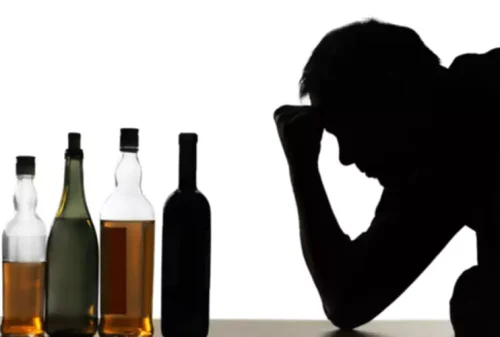Sugar Cravings after Quitting Alcohol: 10 Dietitian-Approved Tips

These complementary approaches can help individuals manage stress, build resilience, and enhance overall well-being. By nurturing the mind, body, and spirit, recovering alcoholics can find alternative sources of comfort and pleasure, reducing the reliance on sugar as a substitute. Similarly, consuming sugar activates the brain’s reward pathways, leading to the release of dopamine.
Navigating The Effects Of Alcohol Abuse On Families
- Alcohol significantly affects blood sugar levels, causing a yo-yo effect.
- Alcohol is a form of sugar, meaning that it is composed of molecules of carbon, hydrogen, and oxygen.
- And I want to let you know it is possible to quit alcohol without picking up a different addiction.
- Multivitamin and/or B vitamins can be helpful as well especially with heavy alcohol use.
- Recovering from alcohol addiction involves not only addressing the physical and psychological aspects but also managing the cravings that may arise during the process.
Alcohol initially boosts dopamine levels, which produces a feeling of relaxation and happiness. However, as a person drinks more and more over time, the brain adapts to the dopamine rush. Creating new healthy habits together with friends or family members can be an effective way to stay motivated and accountable. This could include https://ecosoberhouse.com/article/what-are-sober-living-homes/ cooking healthy meals together, exercising regularly, or attending group therapy sessions. Fruits such as berries, apples, and oranges are naturally sweet and can provide a satisfying alternative to sugary snacks. “Any time people change a behavior, our natural gut reaction — literally — is to experience more hunger,” she said.

Coping Mechanisms and Stress
Specifically, we will discuss the role of pre-treatment glucose levels and the impact of heavy drinking on these levels. Understanding these biological influences can provide crucial insight into why recovering alcoholics crave sugar. By addressing these imbalances and deficiencies, individuals in recovery can manage their sugar cravings more effectively, potentially aiding their recovery process. Alcohol has a substantial impact on blood sugar levels, causing spikes and crashes, which make sugar cravings incredibly common in early recovery from alcohol use disorder.

Dietary Impact on Recovery
By addressing these factors, individuals in recovery can pave the way for a healthier and more balanced life. People with substance use disorders often experience intense cravings for sugar during their recovery journey. According why do alcoholics crave sugar to APN, the preference for sweet foods can be linked to addictive behaviors. There seems to be an underlying connection between these addictive behaviors and sugar intake, which can be traced back to how sugar affects the brain.

Identifying the 5 Most Common Drug Interactions
These nutrient deficiencies can affect the body’s overall functioning and contribute to sugar cravings. To compensate for the lack of essential nutrients, the body may send signals for increased sugar intake as a way to obtain quick energy. This can create a cycle of craving and consuming sugary foods or beverages. In conclusion, managing sugar cravings is an important aspect of recovery from AUD.
This section delves into how nutrition impacts mental health in recovery and why managing sugar intake is crucial for those recovering from alcohol addiction. Seeking professional help is an important step in addressing both alcohol use disorder and sugar cravings. Professionals experienced in treating addiction can offer guidance and personalized strategies to manage cravings effectively. Cravings for sugar in recovering alcoholics can also be seen as a sign of nutritional imbalance. The body may be seeking the quick energy boost that sugar provides, as it tries to restore the depleted nutrient stores.
Endorphins, the body’s natural opioids, also play a role in sugar cravings. This suggests that sugar can elicit addictive-like behaviors by engaging the brain’s opioid pathways. Cravings are just another side effect of the battle with addictive substances like alcohol. Fighting those cravings effectively is one of the main benefits of a long-term treatment plan. With Steps to Recovery, you’re one call away from professional treatment plans that help individuals struggling with alcohol fight the challenges that come every step of the way.
How to Stop Drinking
Interestingly, alcohol also impacts dopamine levels indirectly by inhibiting its reuptake, which is the process of dopamine reabsorption by the brain. However, the association of pleasure with alcohol consumption drives individuals to continue drinking to maintain the euphoric buzz [1]. After understanding the basics of managing sugar cravings post-alcohol, let’s look at some healthy alternatives that are not just satisfying but add to your overall well-being.
- With the right strategies and support, individuals in recovery can effectively manage these cravings and make significant strides towards recovery.
- Cravings for sugar in individuals with alcohol use disorder are a common phenomenon during recovery.
- For instance, fresh fruits can serve as a healthier alternative to candies and pastries.
- Regular alcohol drinkers can become tolerant to sugar from their alcohol intake.
- If you’re tired, you are more likely to reach for a sugary treat or a pick-me-up in the afternoon.
- Incorporating protein and healthy fats into meals can further stabilize blood sugar levels and reduce cravings.
- Eating a diet high in nutrients can help improve mood, while foods with low nutritional value and high sugar content may hinder mood stabilization.
- ‘, break stigmas, and discover resources for assistance and understanding.
- Unravel addiction relapse rates in the United States and discover strategies for prevention.
Overview
- Booking Price : $0
